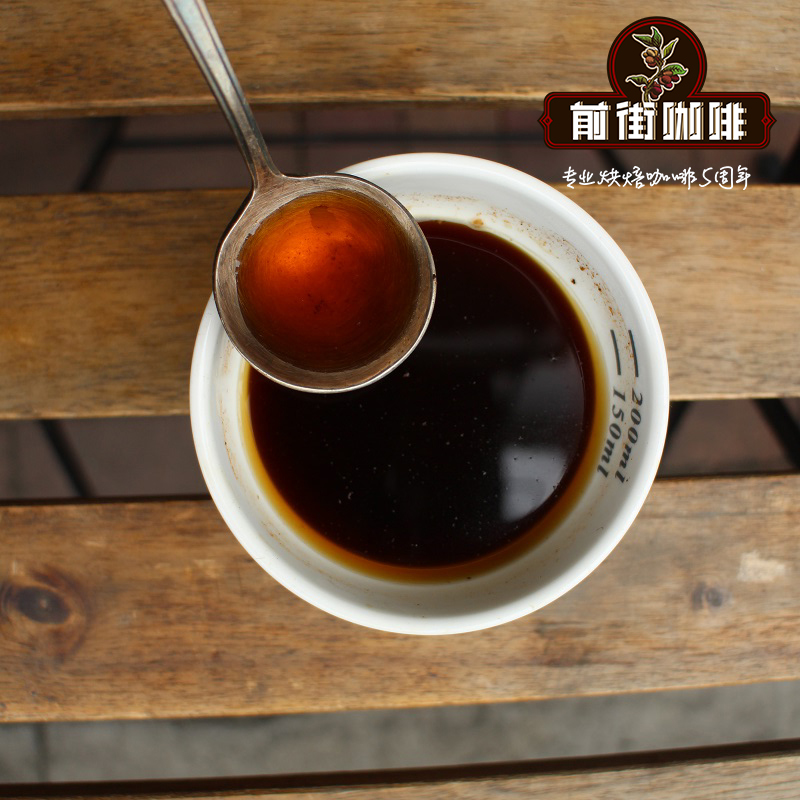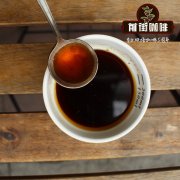What is the flavor of Rwandan coffee? introduction of Rwanda Twumba Coffee washing Plant

Professional coffee knowledge exchange more coffee bean information please follow the coffee workshop (Wechat official account cafe_style)
Rwanda has always been given good coffee growing conditions: high altitude, volcanic soil, rich sunshine and Cabernet Sauvignon. Rwanda is also known as the "country of a thousand mountains" because many coffee trees are planted on mountains between 1700 and 2000 meters above sea level. Rwandan coffee is a world-class enjoyment, not only more balanced than Kenya coffee, but also clear enough to compete with Chinese and American coffee. Generally speaking, Rwandan coffee has the sweetness of fruit, the fragrance of flowers and the aftertaste of black tea. The mode of operation of coffee production lines often depends on the country of production, while coffee in Rwanda is produced entirely by small farmers rather than large-scale enterprises. Compared with farms in Brazil, even small ones reach 20 hectares, while the 0.1-0.2 hectares in Rwanda are negligible.
The farmers here will first pick the coffee beans from the coffee trees with their hands, then send them to the processing table, and be trampled by barefoot, singing farmers. These coffees are sweet with a clear taste of lemon and a faint taste of berries and chocolate.
For these developing countries, when the demand for special coffee becomes more and more popular, coffee will naturally become one of the main development directions of the country, in order to make continuous progress and be recognized by the international market.
When the coffee beans are separated from the fruit, the brown farmers will sort the beans one by one with rake and water, and then bask in the sun. As the coffee beans are sensitive to air humidity, whenever the breeze blows suddenly, the farmer will quickly cover them with a tarp.
The Twumba coffee washing and processing plant is located in Nyaruyaga village of Gitabura Cell, Twumba district, Karongi district, western province of Rwanda. The area has a relief featuring high mountains and very steep slopes that flow into valleys and adjacent Nyungwe National forests. The altitude ranges from 1800 meters to 2200 meters above sea level, and the annual average temperature is 18 °C, which varies with altitude.
It was in 2014, when the name of the owner of Twumba Coffee went to visit farmers in the area and was inspired by his observation of beautiful coffee cultivation. He had a brief meeting with farmers in the surrounding area, where he pointed out that coffee washing plants in the area were far away from their agriculture. The owners of CWS decided to set up coffee washing plants to support these agricultural communities, with the main objective of promoting them to collect coffee and improve the agricultural system, and then connect with the market (as there is no favorable market for coffee cherries, because there are no cleaning stations in the region).
The coffee variety grown in the area is Arabica coffee, which is processed with clean water from natural springs from the Nyungwe Forest, dried on a raised drying table and stored in good conditions. Sometimes coffee fruits from a single farm with great production and quality potential are followed and consciously removed from other coffees and sold in miniature batches.
Coffee processed in these areas is also known as "women's coffee" because of the fact that women are mainly involved in the entire value chain. Of the coffee collected, 60 per cent are provided by women, 50 per cent are owned by women and 90 per cent of employees in CWS processing are women.
Women who sort and grade coffee are stationed at the coffee washing plant.
The mission of Tropic Coffee, a member of the Women's Coffee Alliance and a partner of Twumba Coffee, is to ensure women's rights in the coffee community to achieve sustainable life and to recognize women's participation in the coffee value chain.
With the support of Tropic Coffee, we ensure that the quality of coffee is controlled at the farm level, and all farmers know that coffee cherries are harvested when they are completely torn (red) and will be sorted to ensure the quality of processed cherries once they arrive at the coffee washing station.
After the establishment of the coffee washing station, producers and coffee farmers who supply coffee fruits and / or work in coffee washing plants benefit greatly from the contribution of their income to their lives and provide education and insurance for their children. Their entire families and small businesses also support their agriculture.
Grade: 1
Score: 90.53
Farm: TWUMBA Coffee
Farmer / representative: YANDAGIYE Marthe
Altitude: 1800-2200m
Country: RWANDA
Year: 2018
Region: KARONGI
Department: TWUMBA
Processing system: dry and wet
Variety: 100% bourbon Arabica coffee
TWUMBA COFFEE LOT:1
Village: NYARUYAGA
CELL:GITABURA
Industry: TWUMBA region
Qianjie coffee is recommended to be brewed with 90-91 degrees water for about two minutes. With cherry, raisin and lime flavors.
Qianjie coffee: Guangzhou bakery, the store is small but a variety of beans, you can find a variety of unknown beans, but also provide online store services. Https://shop104210103.taobao.com
Important Notice :
前街咖啡 FrontStreet Coffee has moved to new addredd:
FrontStreet Coffee Address: 315,Donghua East Road,GuangZhou
Tel:020 38364473
- Prev

Is it good to wash Sidamo G1 coffee beans? Sidamo Haier Serahikaibedo Coffee Cooperative
Professional coffee knowledge exchange more coffee bean information please follow the coffee workshop (Wechat official account cafe_style) Ethiopian water washed Sidamo coffee G1 Herselahi Ethiopia Sidamo Haile Selassie Washed Kebado G1 coffee story Haile Serrahi was originally known as the master of the lion, the last emperor of Ethiopia, this emperor
- Next

What is the flavor of Rwandan coffee? introduction of Rwanda Twumba Coffee washing Plant
Professional coffee knowledge exchange more coffee bean information Please follow the coffee workshop (Wechat official account cafe_style) Rwanda has always been given good coffee growing conditions: high altitude, volcanic soil, rich sunshine and Cabernet Sauvignon. Rwanda is also known as the land of thousands of mountains because many coffee trees are planted on mountains between 1700 and 2000 meters above sea level. Rwanda Coffee
Related
- Detailed explanation of Jadeite planting Land in Panamanian Jadeite Manor introduction to the grading system of Jadeite competitive bidding, Red bid, Green bid and Rose Summer
- Story of Coffee planting in Brenka region of Costa Rica Stonehenge Manor anaerobic heavy honey treatment of flavor mouth
- What's on the barrel of Blue Mountain Coffee beans?
- Can American coffee also pull flowers? How to use hot American style to pull out a good-looking pattern?
- Can you make a cold extract with coffee beans? What is the right proportion for cold-extracted coffee formula?
- Indonesian PWN Gold Mandrine Coffee Origin Features Flavor How to Chong? Mandolin coffee is American.
- A brief introduction to the flavor characteristics of Brazilian yellow bourbon coffee beans
- What is the effect of different water quality on the flavor of cold-extracted coffee? What kind of water is best for brewing coffee?
- Why do you think of Rose Summer whenever you mention Panamanian coffee?
- Introduction to the characteristics of authentic blue mountain coffee bean producing areas? What is the CIB Coffee Authority in Jamaica?

